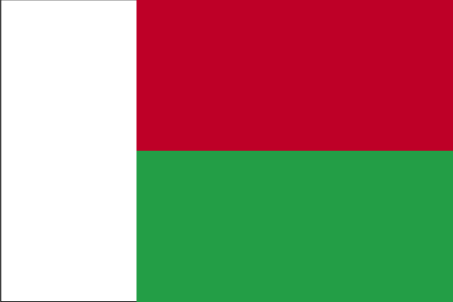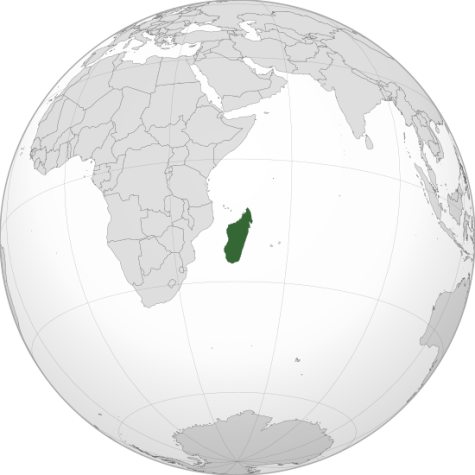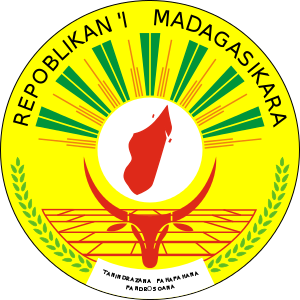Madagascar: Culture, Politics, and Society
Everything you need to know about the cultural, political, and social aspects of Madagascar.

US CIA, Public domain, via Wikimedia Commons
This is the official flag of Madagascar, including two horizontal bands of red and green, with a vertical band of white on the left.
Everyone loves the hilarious movie “Madagascar,” but what do most of us actually know about the real nation? Keep reading to deepen your understanding of the culture, politics, and society in the country of Madagascar.
According to iExplore, Madagascar’s culture is rooted in diverse tribal heritages and customs, in which ancestors are highly respected and traditional festivals are very important. Islam and Christianity are the dominant religions of this country; however, most villages turn to a healer to predict the future of their community and cure any illnesses. There are many traditional music and dance customs that originate from Indonesia and Africa, and these are a vital part of all ceremonies and festivals. Additionally, family is extremely important in Madagascar culture, and recent laws have improved the status of women’s rights in Malagasy society and in the workplace as well. It is recommended that, when visiting this beautiful and unique country, tourists ask a local about traditions of the region they are visiting to prevent being accidently offensive, because many taboos are still respected in communities and govern daily lives.

USAID reveals that the Malagasy Republic became independent in 1960; however, the public grew dissatisfied with the political and economic conditions of the country, leading to a gradual transition to democracy and a free market economy. The current Chief of State of Madagascar is President Andry Rajoelina, and alongside him is the Head of Government Prime Minister Christian Ntsay. Madagascar’s most recent election marked the first democratic handover of political power in the nation’s history. They are known as the Republic of Madagascar and have recently adopted a new constitution launching the Fourth Republic of Madagascar in 2010. This constitution was thought of as an attempt to consolidate and legitimize the rule of Andry Rajoelina and his government. Additionally, in Madagascar, the president is only allowed to serve two five-year terms and is elected by popular vote, and then appoints the prime minister.

Finally, according to MapsofWorld, modern Madagascar society is a blend of both traditionalism and modernism. The countryside remains mostly traditional, many decisions still being made by a council of male elders. The younger generation resents this traditional structure, resulting in higher levels of migration among young people to urban parts of the country.
Most Malagasy people continue to observe traditional customs showing respect to their ancestors because family is extremely important in their culture. The current government is attempting to encourage the blending of old and new customs and cultural expressions, and a number of seasonal festivals have been promoted, such as the Festival of Rice and the Festival of the Trees. Madagascar celebrates many of the holidays observed by the wider Christian community, such as Easter and Christmas, as well as their own Independence Day on June 26th and the Anniversary of the Republic, observed on December 30th.
As our world begins to open up after two years of living in a pandemic, a trip to the land of Madagascar should be on everyone’s bucket list as it provides never ending opportunities to expand your knowledge on the culture, politics, and society of this lovely nation.



